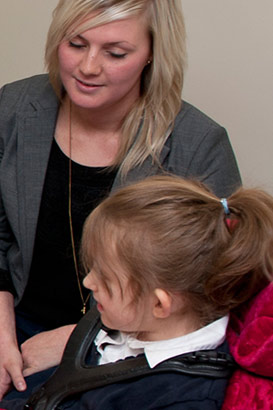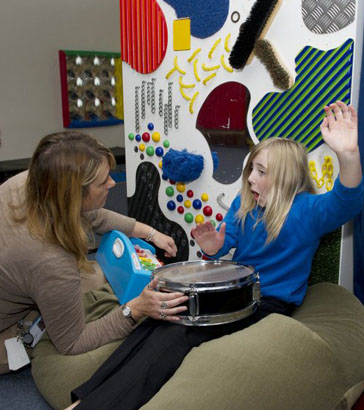a family's life

Seligman and Darling (2007) suggest that parents are looking for a 'normalisation' of their life in light of the needs of their child. Families are looking for services which will allow them to live the life they were expecting before they had a child with a disability - the same sort of lifestyle as the families of non-disabled children.
This desire to live a 'normal' life can be seen as a major motivating force for families.

A range of support is necessary if parents of disabled children are to experience as normal a family life as possible. This includes:
- Access to satisfactory medical care and medical related services.
- Supportive relatives, friends and neighbours
- Access to respite care and day care if needed
- Adequacy of financial resources
- Availability of appropriate recreational facilities
- Access to special equipment
- Adequacy of available transport, and
- Availability of an appropriate education.
Listen to Emma's mum talking about the support she has received.
What types of support have been most helpful to her?
The presence or absence of appropriate support can affect a family's quality of life
A family's ability to have 'normal' life should be seen within the broader context of their life in a community.
Support may change if, for example:
- A family moves to a different area
- They meet helpful professionals
- One of the parents is promoted at work, or
- Someone in the family becomes ill.
Support needs will also change as the child and parents get older. Sometimes, adult children can be a source of help and comfort to older parents, however, many parents are concerned about making provision for their child after their death.
Listen to Emma's mum talking about her concerns as Emma approaches adulthood.
What other transitions might Emma face in her life?

For many families with children with complex needs, special schools are a major support structure and help them to live more 'normal' lives. Special schools can be a particular help to pupils like Emma. They provide safety, specialised equipment and staff that are able to understand and meet her complex needs. In turn, they offer parents reassurance and support. Where parents are confident that their children are well cared for, they can reclaim their lives and achieve a greater sense of 'normality'.

